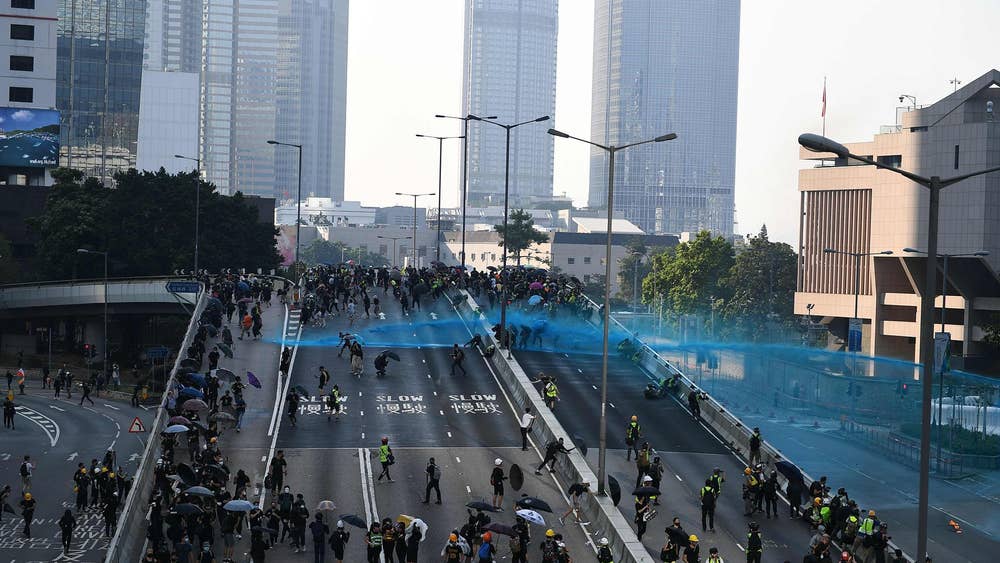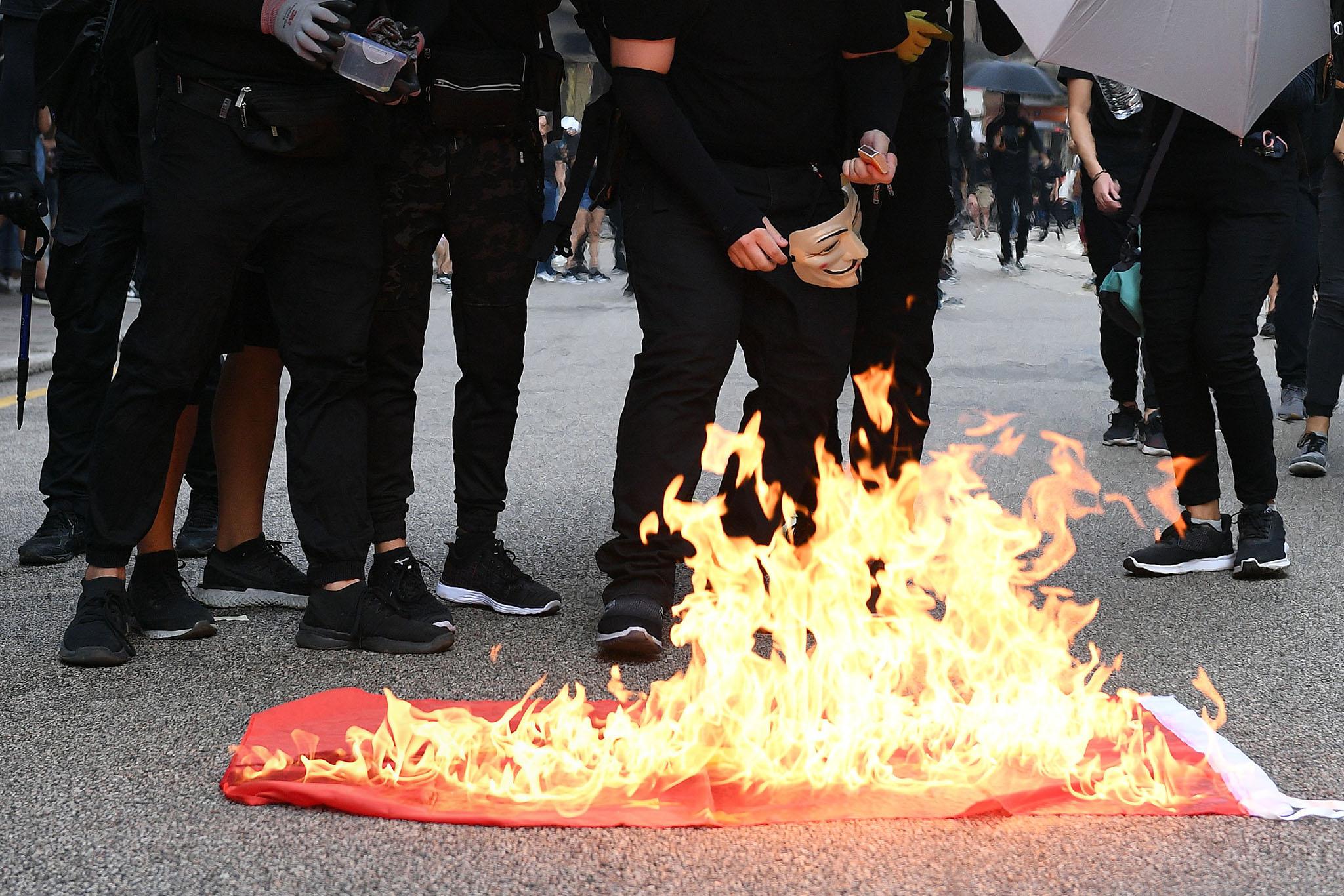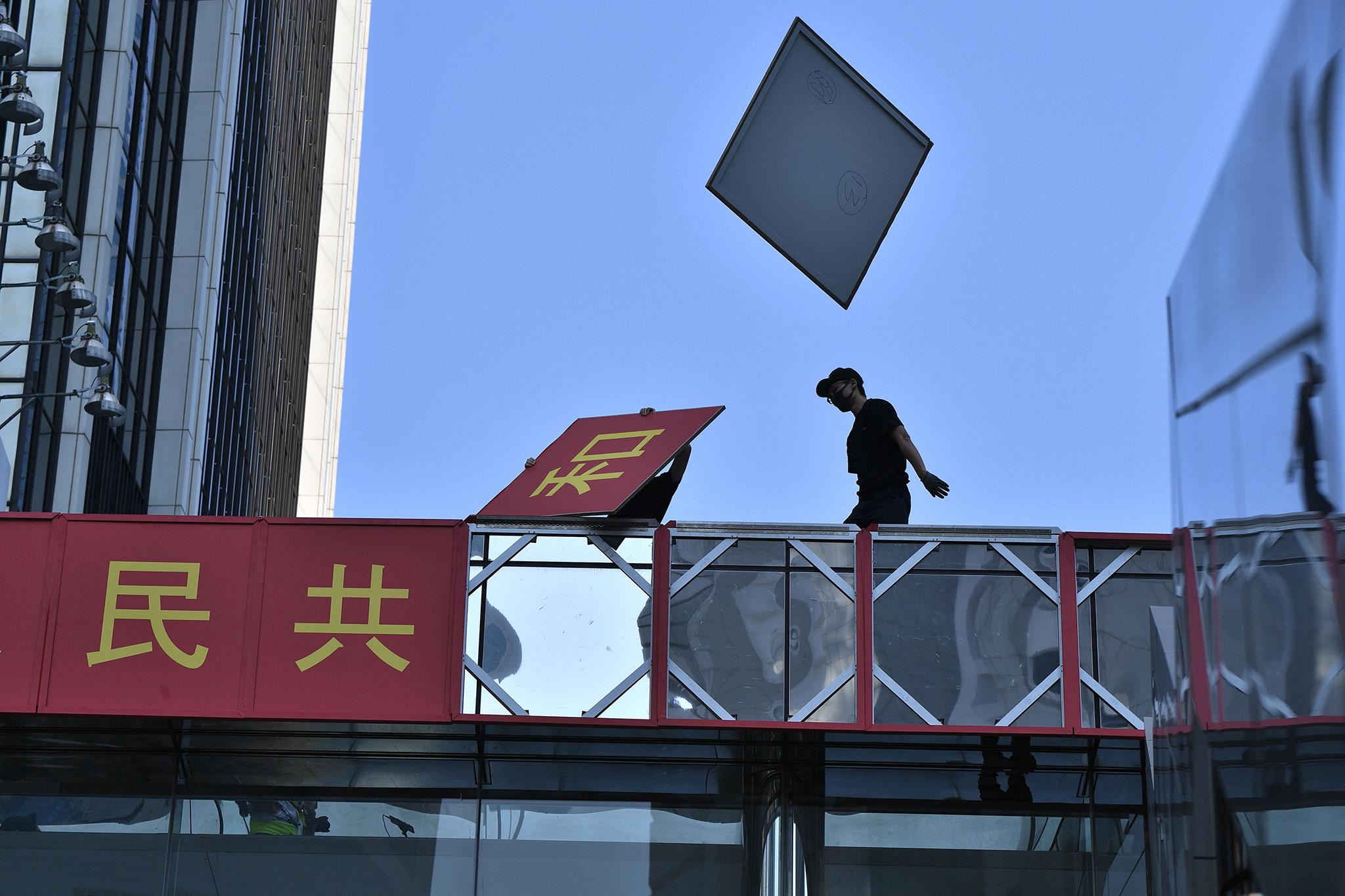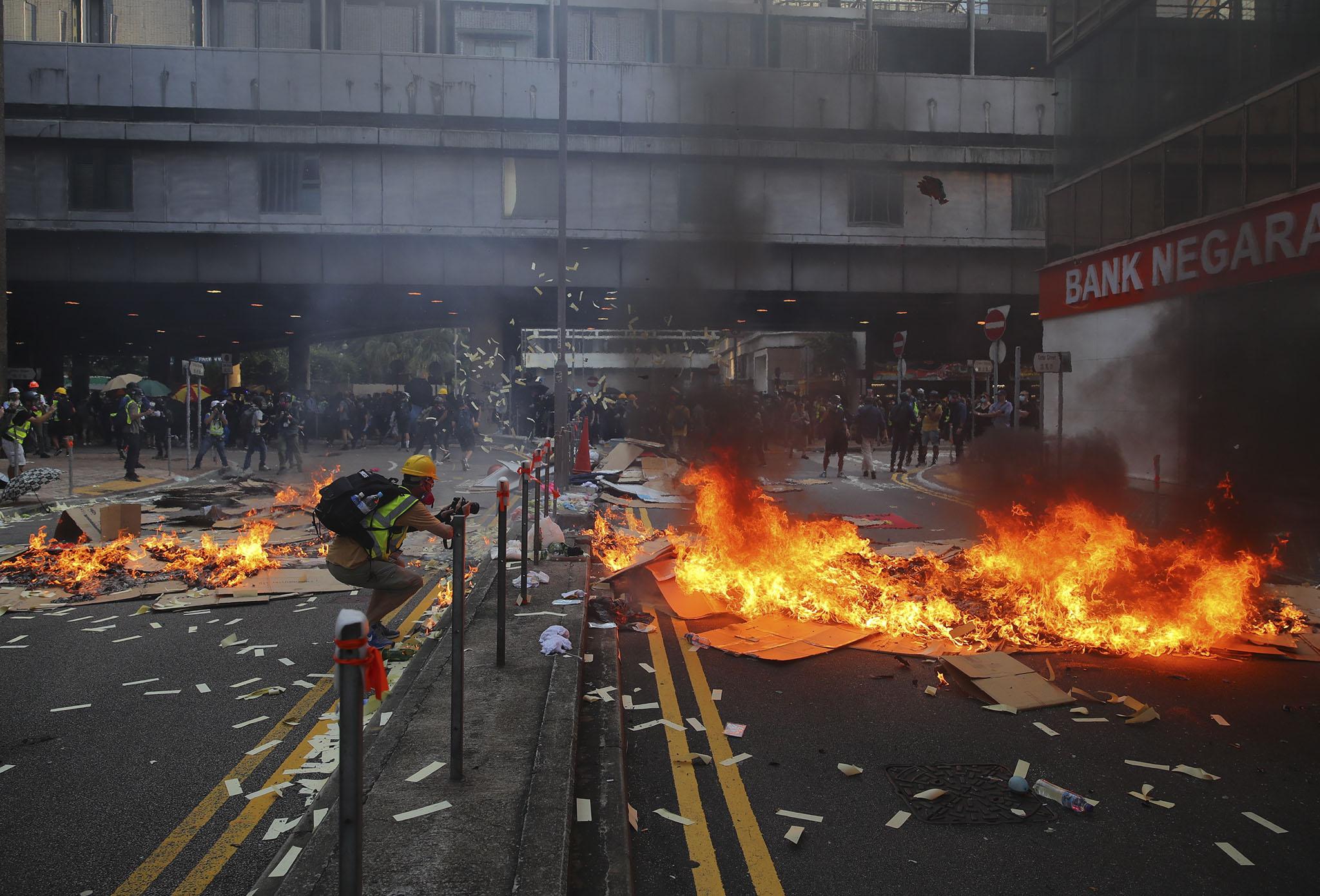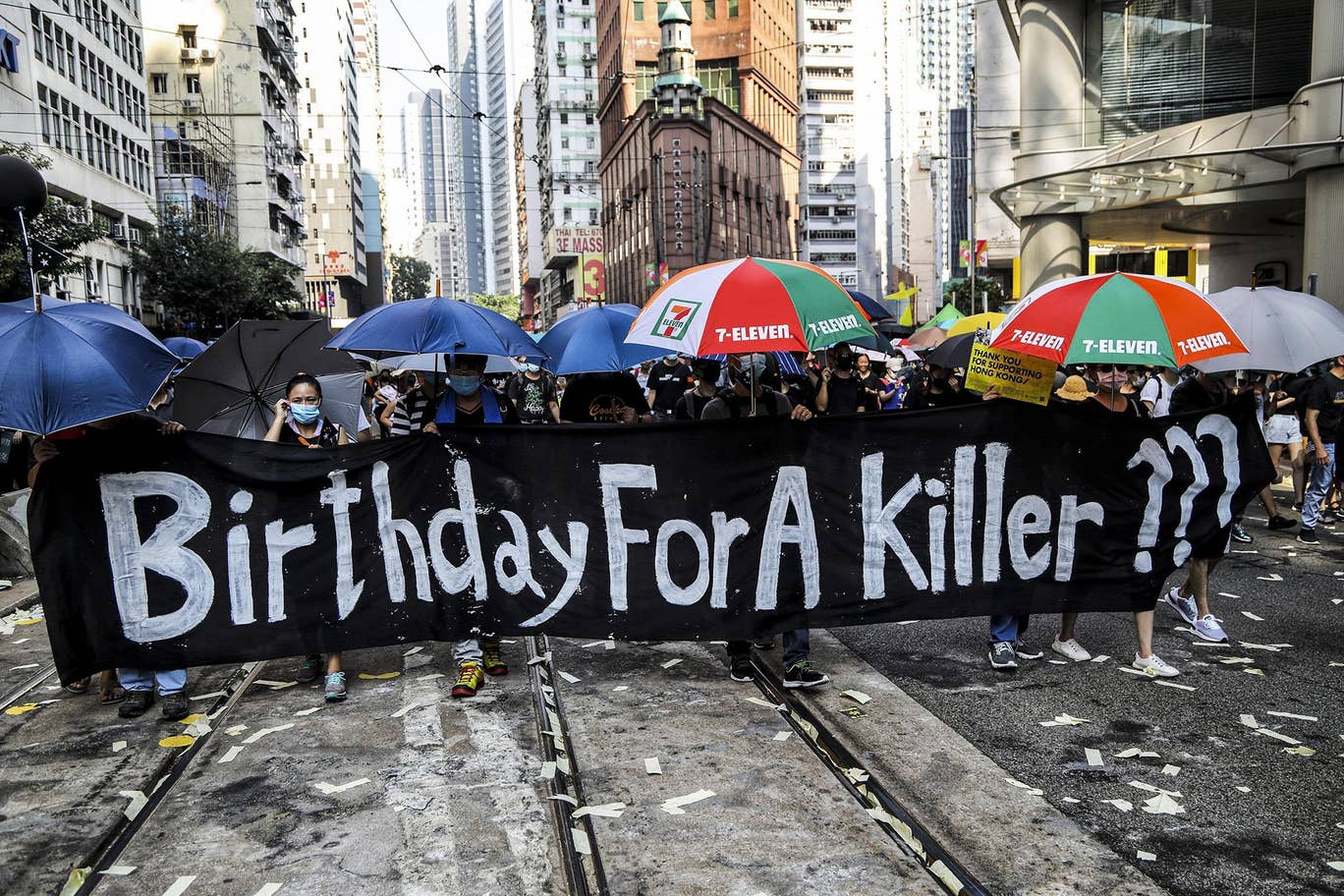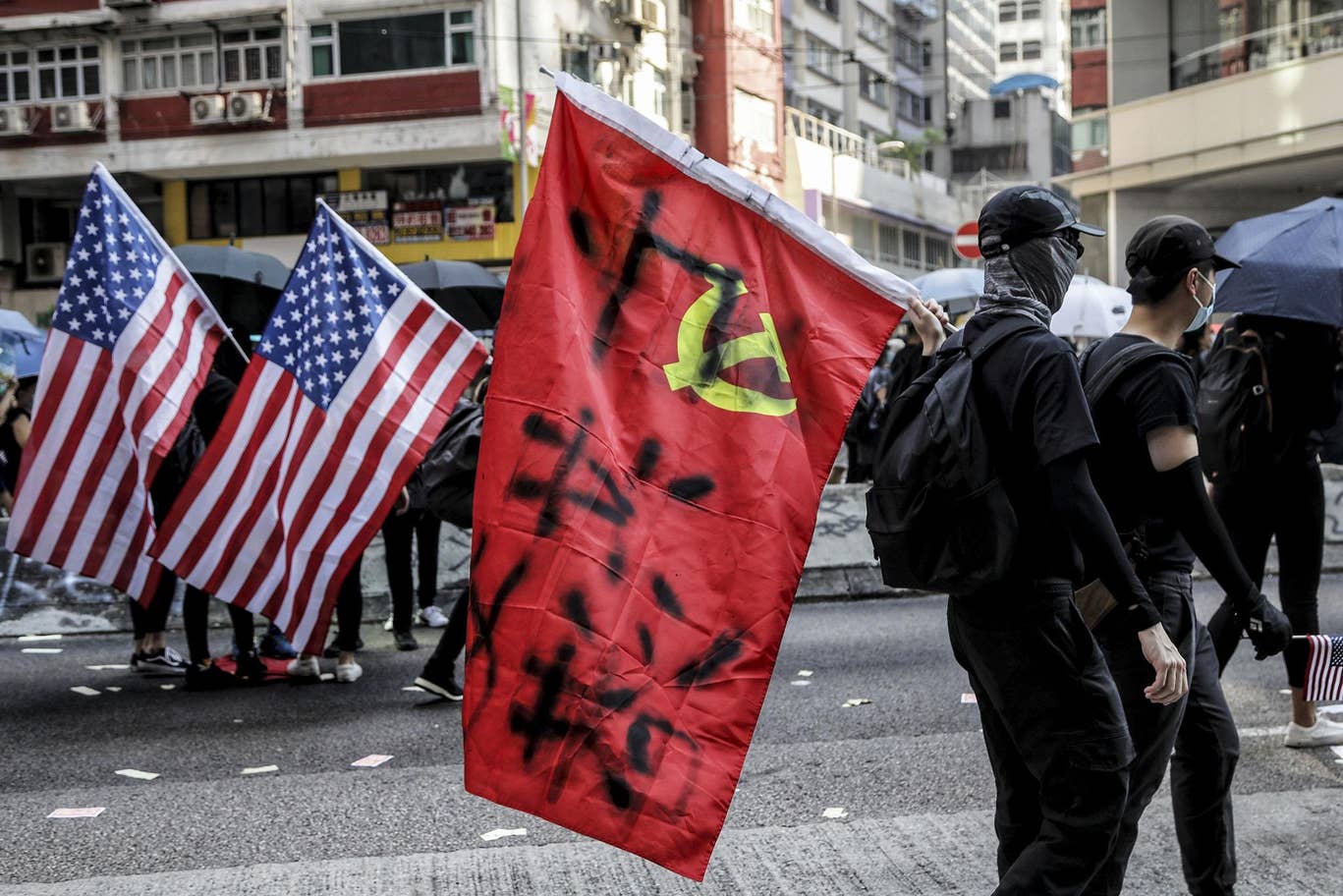Hong Kong protests: journalist blinded in one eye as attacks on media escalate
By Emma Graham-Harrison in Hong Kong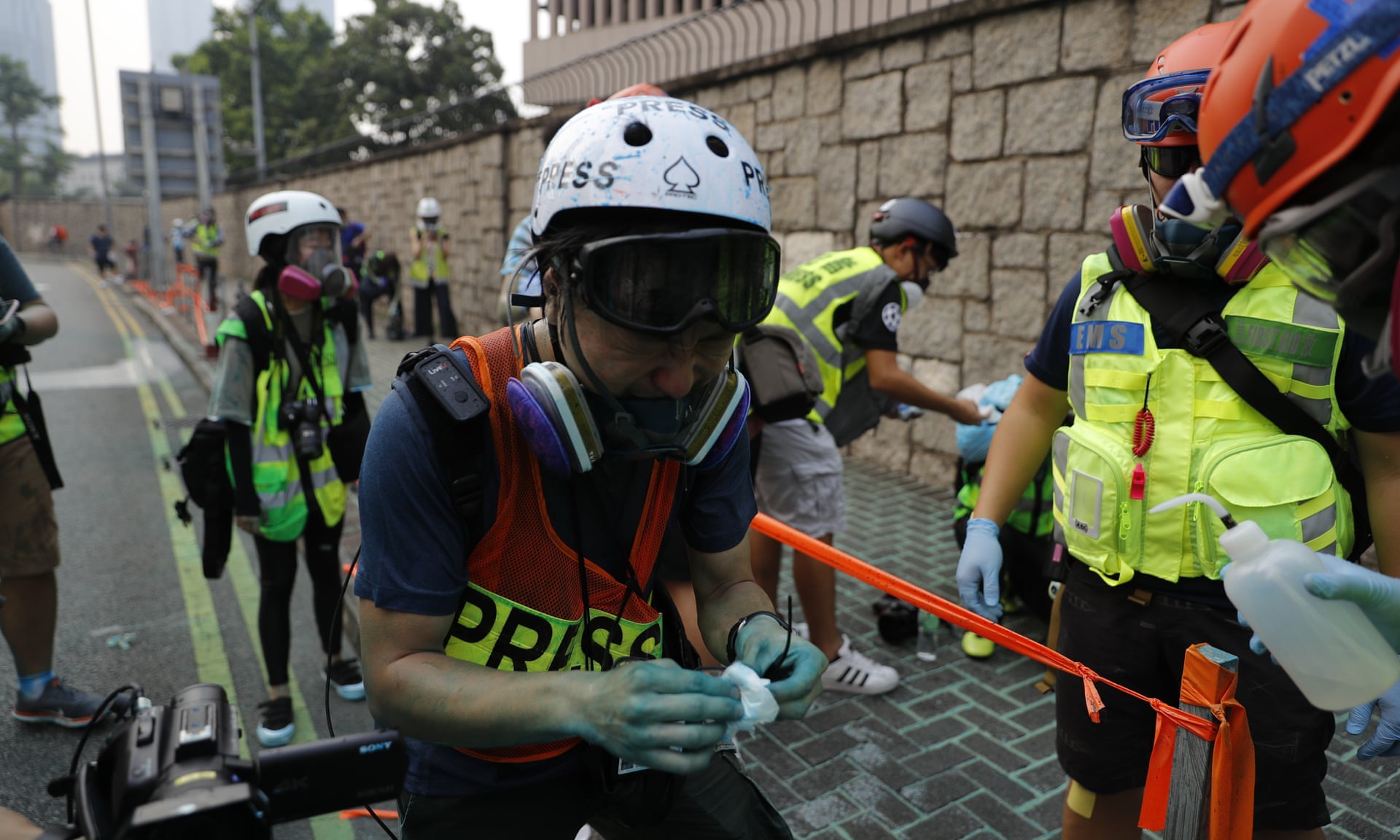
A number of journalists have been injured in Hong Kong protests over the past week.
An Indonesian journalist hit in the face by a rubber bullet during protests in Hong Kong has been permanently blinded in one eye, her lawyer said, the most serious injury among the media since the movement began in June.
Adding to concerns about police tactics, a leaked memo showed authorities had relaxed guidelines on using lethal force the day before a teenage student shot in the chest by police.
Police have insisted the officer was acting "lawfully" in self defence, and the 18-year-old was charged with rioting and assaulting a police officer on Thursday.
There are growing concerns about the threat to journalists from the escalating violence, and an increasingly hostile climate that saw one reporter arrested on Tuesday, after several others were injured by police in a day of chaotic violence.
All were wearing high-visibility jackets and “press” markings.
Indonesian Veby Indah was injured during protests two days earlier, while standing with colleagues on an overpass, filming a livestream.
Police opened fire at relatively short range towards the group; footage shows someone shouting a warning “hey it’s journalists on this side”, but seconds later she was hit and collapsed to the ground.
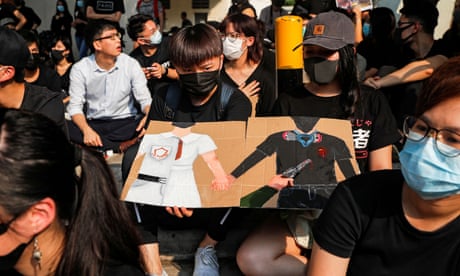
Hong Kong: thousands protest over police shooting of teenager
She was later told that damage to her right eye was irreversible.
“Doctors treating Ms Indah have informed her that regrettably the injury she received as a result of being shot by police, will result in permanent blindness in her right eye,” her lawyer Michael Vidler said in a statement late on Wednesday.
“She was informed that the pupil of her eye was ruptured by the force of the impact. The exact percentage of permanent impairment can only be assessed after surgery”.
The 39-year-old is an associate editor of Suara Hong Kong News, a local outlet which serves the city’s Indonesian community.
The Hong Kong Journalists Association said it would investigate Vedy’s case.
“We are particularly concerned ... [because] the journalist was not in the immediate vicinity of protesters at the time of the incident, she was clearly identifiable as being a member of the press and was with a number of other journalists at the time also wearing high visibility press markings.”
The “one country, two systems” arrangement put in place when Hong Kong returned from British colonial rule to Chinese sovereignty protects freedom of the press, and the protests have been covered by hundreds of local and international reporters.
But police violence and heavy-handed policing is obstructing the media.
On Tuesday several journalists were injured in ‘day of grief’ protests called to mark China’s national day.
Pang Pui Yin, a reporter for the Chinese-language news website Local Press, was arrested by police as they dispersed protesters in Mong Kok district, according to the Committee to Protect Journalists.
Even though he was clearly identified as a member of the press corps, police initially accused him of unlawful assembly, then bailed him after alleging that he assaulted a police officer.
He has been released on bail, but the CPJ called for authorities to drop all charges, and “cease harassing journalists covering protests.”
Journalists who were injured that day include one working for public broadcaster RTHK, who was hit in the head with “some kind of projectile”.
In response the outlet’s English language unit withdrew all reporters from the ground.
Apple Daily said a tear gas canister hit one of its reporters in the stomach, and officers fired at but missed two of its team.
Stand News reported several injuries, including one journalist who was hit in the face by what was thought to be a sponge-tipped round.
Another was hit by a rubber bullet.
Police were also accused of pushing and shoving reporters, and one video posted online showed officers aiming a gun at the face of reporters, who were wearing “press” markings and high-visibility vests.
Protesters on Wednesday apologised for spraying corrosive material on a journalist while targeting police officers.
Police officials have not commented on media injuries.
The Hong Kong Journalists Association warned that journalists had a right to work without violence or obstruction.
“We strongly condemn all acts of violence against front-line journalists and urge the police to refrain from maliciously obstructing their regular interviews,” the Hong Kong Journalists Association sad in a statement.
“Anyone who intimidates or attacks front-line journalists on the ground seriously interferes with the freedom of the press and weakens the public’s right to know.”
Adding to concerns about police tactics, a leaked memo showed authorities had relaxed guidelines on using lethal force the day before a teenage student shot in the chest by police.
Police have insisted the officer was acting "lawfully" in self defence, and the 18-year-old was charged with rioting and assaulting a police officer on Thursday.
There are growing concerns about the threat to journalists from the escalating violence, and an increasingly hostile climate that saw one reporter arrested on Tuesday, after several others were injured by police in a day of chaotic violence.
All were wearing high-visibility jackets and “press” markings.
Indonesian Veby Indah was injured during protests two days earlier, while standing with colleagues on an overpass, filming a livestream.
Police opened fire at relatively short range towards the group; footage shows someone shouting a warning “hey it’s journalists on this side”, but seconds later she was hit and collapsed to the ground.

Hong Kong: thousands protest over police shooting of teenager
She was later told that damage to her right eye was irreversible.
“Doctors treating Ms Indah have informed her that regrettably the injury she received as a result of being shot by police, will result in permanent blindness in her right eye,” her lawyer Michael Vidler said in a statement late on Wednesday.
“She was informed that the pupil of her eye was ruptured by the force of the impact. The exact percentage of permanent impairment can only be assessed after surgery”.
The 39-year-old is an associate editor of Suara Hong Kong News, a local outlet which serves the city’s Indonesian community.
The Hong Kong Journalists Association said it would investigate Vedy’s case.
“We are particularly concerned ... [because] the journalist was not in the immediate vicinity of protesters at the time of the incident, she was clearly identifiable as being a member of the press and was with a number of other journalists at the time also wearing high visibility press markings.”
The “one country, two systems” arrangement put in place when Hong Kong returned from British colonial rule to Chinese sovereignty protects freedom of the press, and the protests have been covered by hundreds of local and international reporters.
But police violence and heavy-handed policing is obstructing the media.
On Tuesday several journalists were injured in ‘day of grief’ protests called to mark China’s national day.
Pang Pui Yin, a reporter for the Chinese-language news website Local Press, was arrested by police as they dispersed protesters in Mong Kok district, according to the Committee to Protect Journalists.
Even though he was clearly identified as a member of the press corps, police initially accused him of unlawful assembly, then bailed him after alleging that he assaulted a police officer.
He has been released on bail, but the CPJ called for authorities to drop all charges, and “cease harassing journalists covering protests.”
Journalists who were injured that day include one working for public broadcaster RTHK, who was hit in the head with “some kind of projectile”.
In response the outlet’s English language unit withdrew all reporters from the ground.
Apple Daily said a tear gas canister hit one of its reporters in the stomach, and officers fired at but missed two of its team.
Stand News reported several injuries, including one journalist who was hit in the face by what was thought to be a sponge-tipped round.
Another was hit by a rubber bullet.
Police were also accused of pushing and shoving reporters, and one video posted online showed officers aiming a gun at the face of reporters, who were wearing “press” markings and high-visibility vests.
Protesters on Wednesday apologised for spraying corrosive material on a journalist while targeting police officers.
Police officials have not commented on media injuries.
The Hong Kong Journalists Association warned that journalists had a right to work without violence or obstruction.
“We strongly condemn all acts of violence against front-line journalists and urge the police to refrain from maliciously obstructing their regular interviews,” the Hong Kong Journalists Association sad in a statement.
“Anyone who intimidates or attacks front-line journalists on the ground seriously interferes with the freedom of the press and weakens the public’s right to know.”
